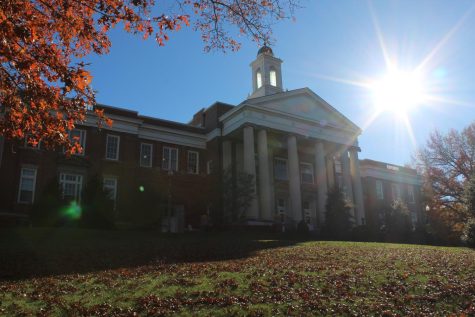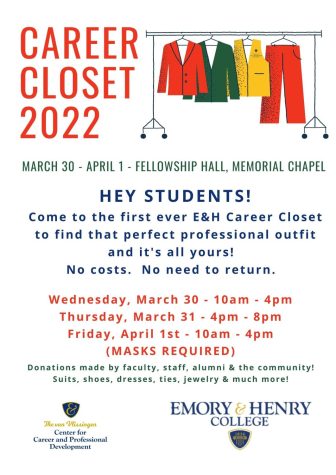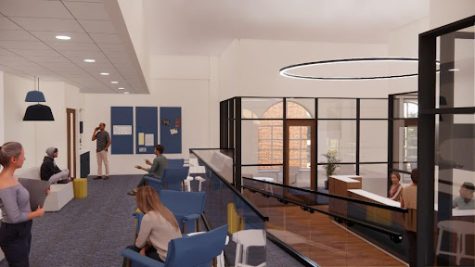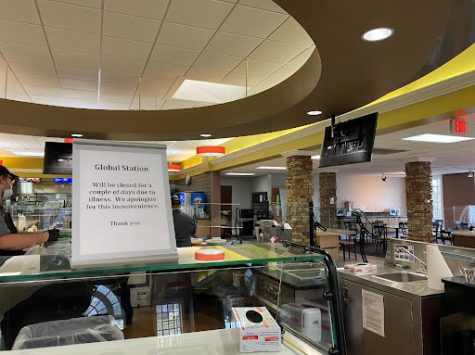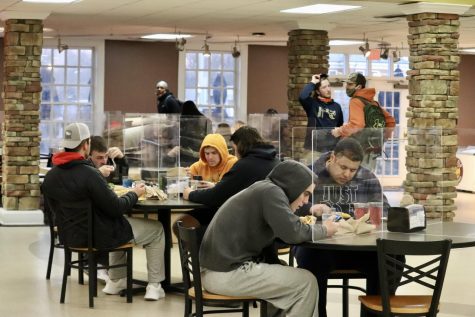Student Reactions to COVID-19 Class Adjustments Provide Insight for Colleges
As students across the U.S. adjust to virtual or socially distant learning, their perspectives offer vital information for class planning.

Zoom has become a standard in virtual education as colleges and universities look for the best way to host classes.
September 4, 2020
Running across the Emory & Henry campus at 8 a.m. in an attempt to make it to class on time is not something college sophomore Marybeth Hefner thought she would ever miss. Hitting snooze one too many times often led to this panicked rush in her freshman year, but these days Hefner is never running late.
Hefner’s dash across campus became a groggy walk to her computer, and now, going to class only involves turning on the screen. Hefner is adjusting to this new practice as virtual learning becomes standard for college students due to the COVID-19 pandemic.
Hefner is optimistic, but not confident, about virtual learning.
“I’ve learned to appreciate not having to sprint across campus to get to class before 8 a.m. and not having to look nice for class,” Hefner said. “However, from previous experiences I do not do well with online classes or learning.” Having an entire semester online, “gives me a lot of anxiety,” Hefner said.
Hefner’s cautiously optimistic anxieties are not unique. As college students adjust to virtual learning, many are finding points of contention with the learning style. Based on interviews with students from three Virginia colleges, student reactions to online classes are varied as the fall semester begins.
E&H sophomore McKenzie Joyce prefers in-person learning and has found online classes particularly difficult. “I have ADHD, so it is a lot harder for me to stay focused during online classes,” Joyce said.
E&H freshman Leah McCloy expressed similar concerns saying, “It is harder than in person learning. … For a girl who has ADHD it is hard for me to be able to understand each concept that I get taught.”
Despite their concerns, both students shared a bit of optimism about the virtual fall semester.
“Something I appreciate about online learning is that some of my classes are learned at [a student’s] own pace,” Joyce said.
“I do like that it’s a new experience for me,” McCloy added.
Other students have found an unexpected preference for online classes, though.
“I like online learning. It provides a unique experience to students and teachers, and in general it helps them branch out … it tests creativity,” Virginia Tech sophomore Grace Shockley said. “I also enjoy learning in different environments. From hammocks to coffee tables, [learning has become] relaxing.”
Other students address the legitimacy and necessity of virtual learning while disliking it personally.
“I appreciate the precautions taken to protect the students from COVID-19; however, I will not say I was excited about online learning,” said E&H sophomore Rachel Watts.
Case Grube, a freshman at New River Community College, believes that “online school can be a legitimate alternative to in-person classes if implemented correctly; however, it is difficult for many because it requires great diligence and motivation, which a lot of students, especially younger students, lack.”
The legitimacy of virtual learning in higher education is shown by the many online degree programs that exist today. Southern New Hampshire University (SNHU) promotes its online degree by displaying it as affordable and flexible. “Our online platform allows you to personalize your college experience to how you work best,” the University’s website states.
For SNHU graduate Chris Crews, online learning has benefits and limitations. “You can get a [Bachelor of Arts/Bachelor of Science] in two years while working full time, but for anyone who struggles to even attend classes in person, virtual learning is really difficult,” Crews said. “Virtual learning is less difficult for people with good study habits.”
Despite the legitimacy of online learning, it is a considerable adjustment for college students who are accustomed to in-person classes. So, based on student reactions, what do students want to see their colleges and universities doing about virtual learning?
Some students believe that the partially virtual model many schools are using is the best option. “I would like to see hybrid classes that allow all students back on campus … but still have a portion of learning online from campus to avoid groups of people that are too large for CDC guidelines,” Hefner said.
Others desire to get back on campus as soon as they can. “I feel we should try to get as close to in-class learning as we can while still taking COVID-19 seriously,” said Grube.
Taking COVID-19 seriously is a primary focus of many institutions. Physical distancing is mentioned in the reopening plans for E&H, Virginia Tech, and New River Community College. All three universities are hosting some in-person classes, but the need for physical distancing makes virtual classes a necessity.
Virtual learning has been a standard for education since the pandemic began, but college students are still reacting and adjusting. As the semester continues, varied student reactions to virtual classes serve as a reminder that the pandemic is a social adjustment for us all.



